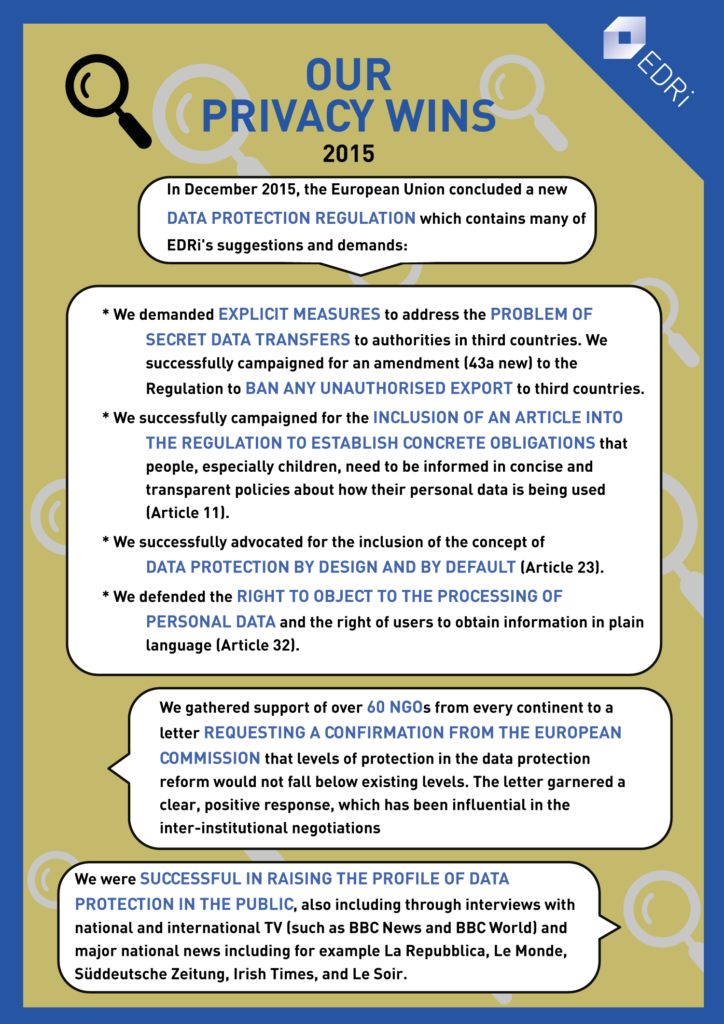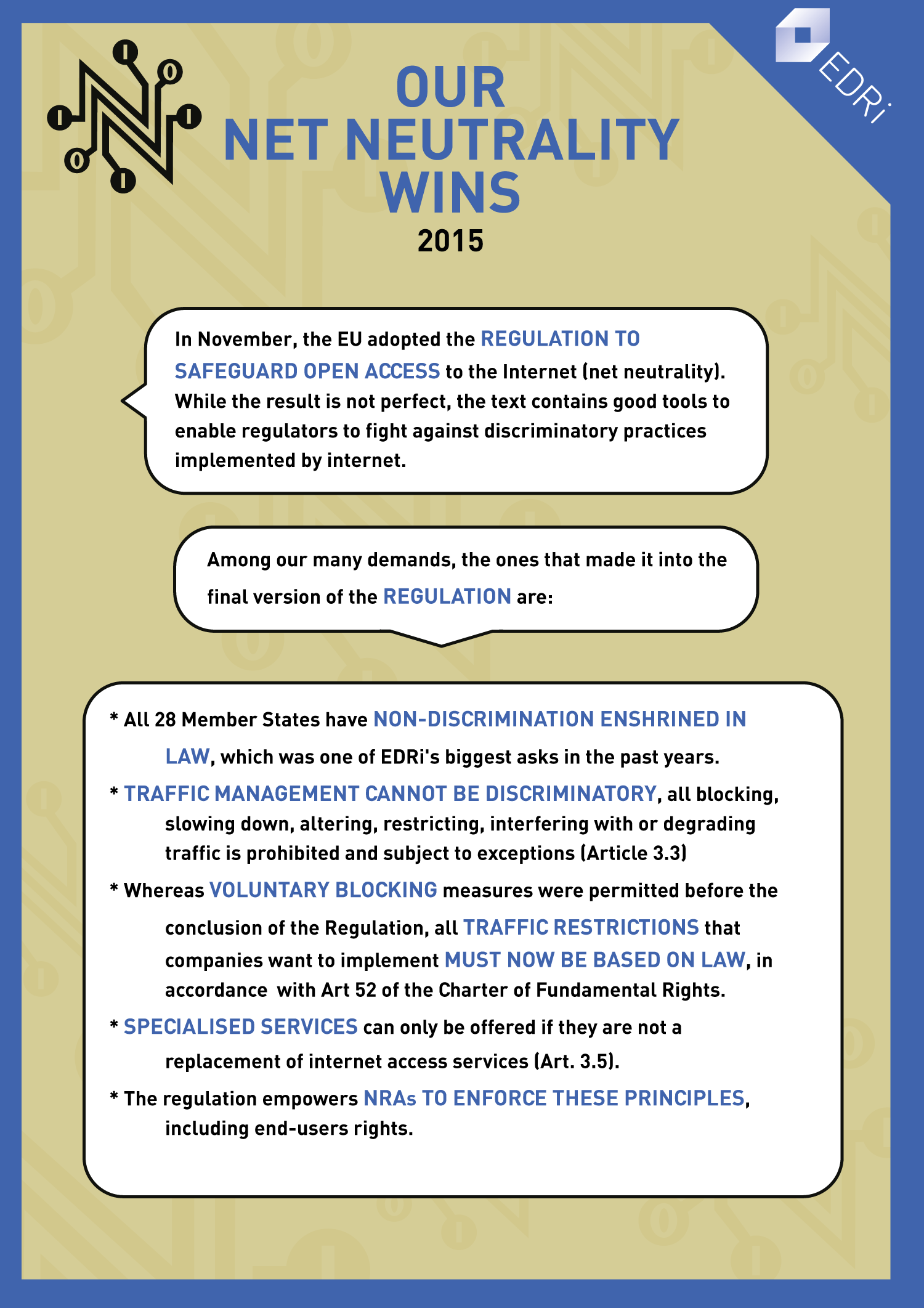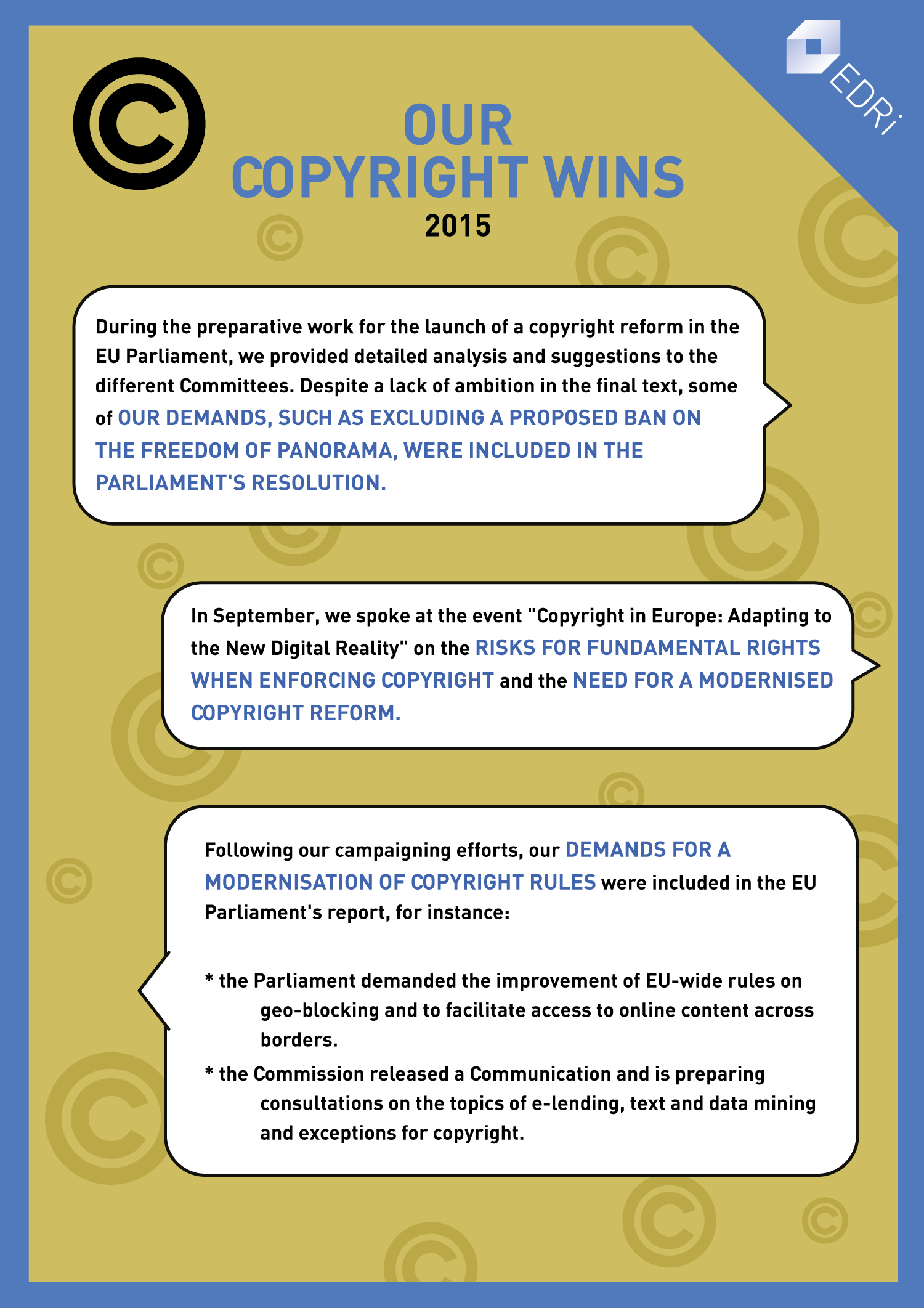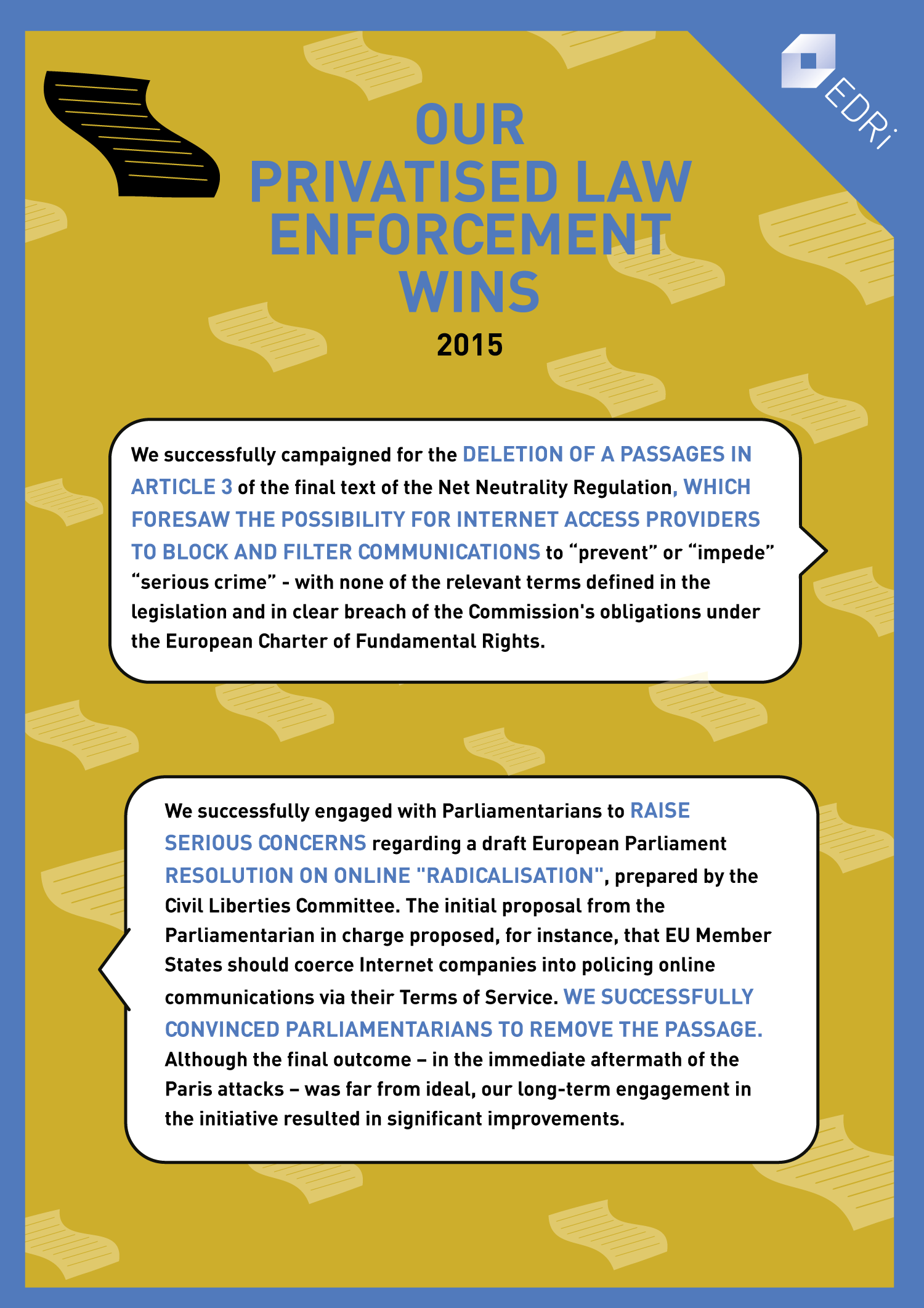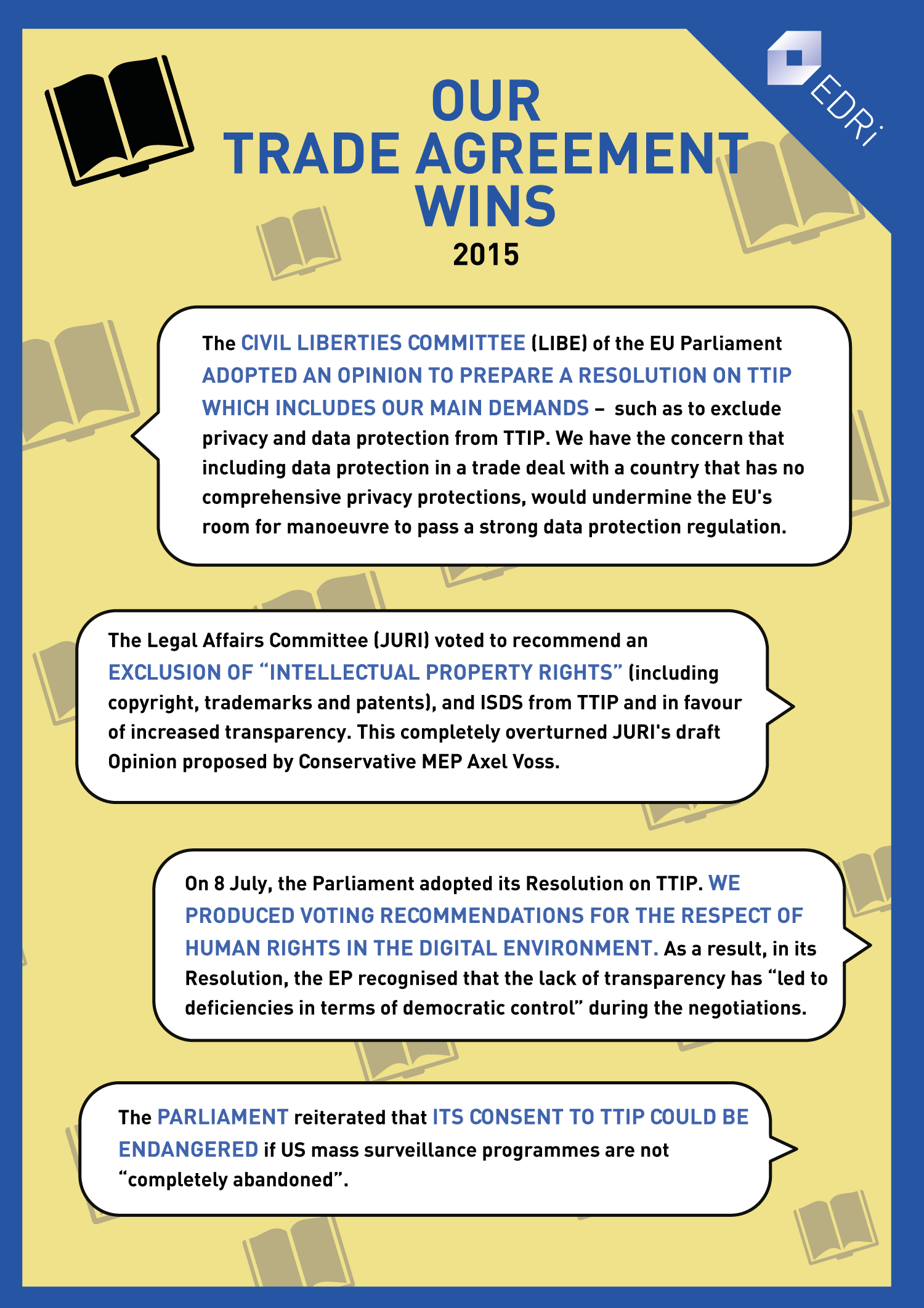EDRi’s work in 2015
Information technology has a revolutionary impact on our society. It has boosted freedom of communication and democracy but has also led to new approaches to surveillance and is increasingly used to impose restrictions on fundamental rights. In the past year, we worked hard to ensure that your rights and freedoms in the online environment are respected when they are endangered by the actions of political bodies or private organisations.
Sadly, 2015 was a year in which our rights and freedoms were endangered on multiple occasions. In response to the terror attacks in Paris, Europe’s governments were quick to react to the tragedy by calling for more surveillance, ignoring the failures of existing measures. At the EU level, this meant the rushing of anti-terror measures (Directive on combating terrorism), a big push for the adoption of the previously rejected proposal for the monitoring of air passengers (EU PNR) and the launch of initiatives to push Internet companies into voluntary censorship measures.
But there were also successes, especially with regard to data protection and the demise of the “Safe Harbor” agreement. Our key campaigns were heavily focused on driving a positive agenda – for a conclusion of the data protection reform package, for the upholding of equal access to the Internet (net neutrality) in Europe, and for a reform of the EU’s outdated copyright framework. For copyright, we want to improve access to knowledge and culture online, thereby indirectly reducing incentives for invasive enforcement mechanisms. We also worked on privatised law enforcement by Internet companies as well as trade agreements (both of which are horizontal topics that touch virtually all digital rights issues).
Last but not least, we’ve been preparing for the future. In March 2015, EDRi’s members agreed on a multi-annual strategy and decided on the organisation’s four key focus areas for the next years (data protection and privacy, surveillance, network neutrality and copyright reform).
You can find the full annual report 2015 here (pdf) and our transparency report there (png). You can also check out our press review 2015, our responses to public consultations last year and, last but not least, you can find a neat overview of our biggest achievements below:
Data protection and privacy
Surveillance
Network neutrality
Copyright Reform
Privatised law enforcement
Trade agreements
Data protection and privacy
Privacy material
- Document pool
- Infographic explaining the trilogue process
- Analysis of the Council texts: Broken Badly (pdf)
- EDRi’s red lines for the trilogue negotiations (pdf)
Surveillance
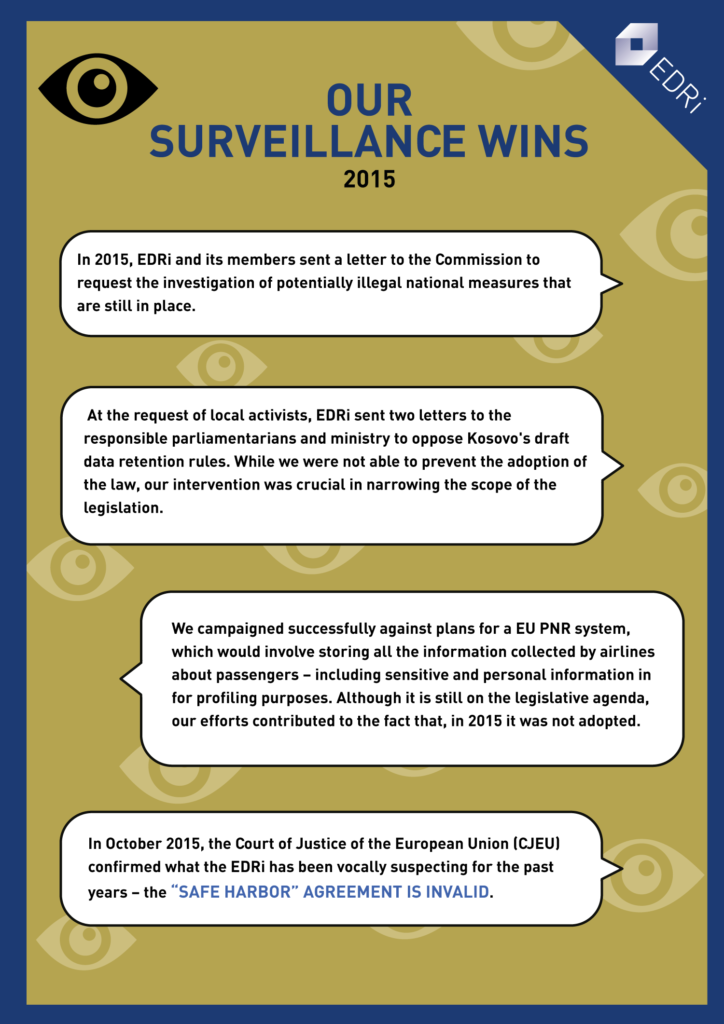
Surveillance material
- Document pool on the EU’s plans to collect Passenger Name Records (PNR)
- FAQ on PNR
- Infographic on surveillance in the EU
- Coordination of a letter co-signed by 30 civil rights groups to condemn the adoption of a mass surveillance bill in France
- Postcards sent to Members of the EU Parliament
- Articles and blogposts
Network neutrality
Our net neutrality material
- Document pool
- Campaign portal relaunched SaveTheInternet.eu
- Infographic: Net neutrality and encryption
- Infographic: Net neutrality and zero rating
- Infographic: Net neutrality and specialised services
- Missing pieces of net neutrality
Copyright Reform
Our copyright reform material
- Document pool
- Infographic to explain the process in the EU Parliament
- Briefing papers sent to Parliamentarians (see pdf and pdf) on the own initiative reports.
- Articles and blogposts
Privatised law enforcement
Our material on privatised enforcement
- Campaign against privatised enforcement measures in the Dati report
- Letter together with industry groups on intermediary liability
- Our position on the EU Internet Forum (pdf) and access to documents requests on the Forum
Trade agreements
Our trade agreements material
- Document pool on the non-legislative resolution of the EU Parliament
- Infographic to explain the legislative process of the resolution
- Two booklets: EDRi’s “Red lines on TTIP” (pdf) and “TTIP and Digital Rights” (pdf)
- Analysis of amendments tabled in various committees (for ex, in INTA together with BoF)

